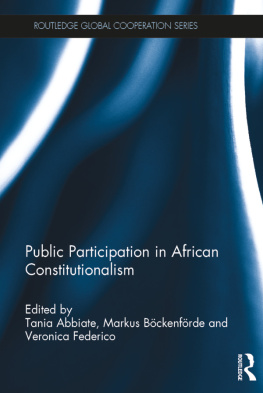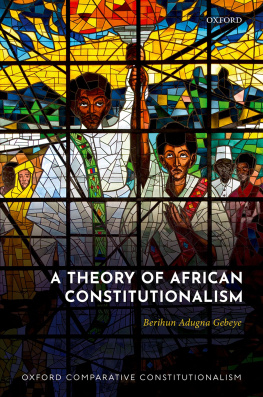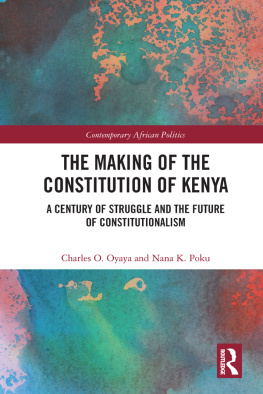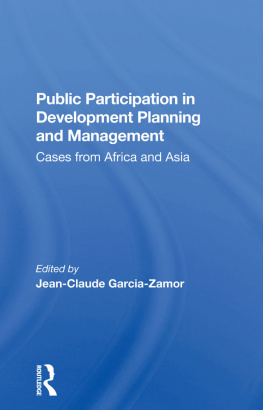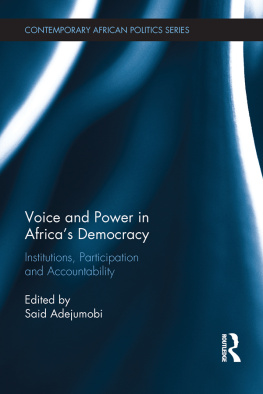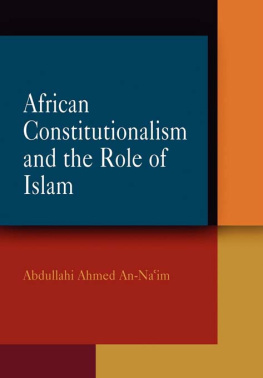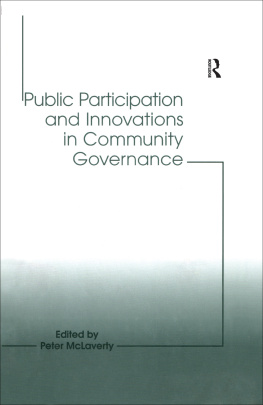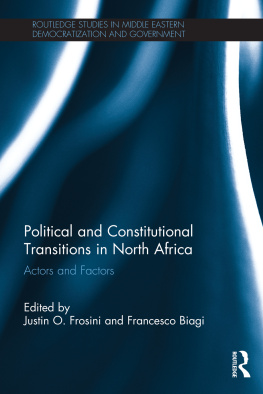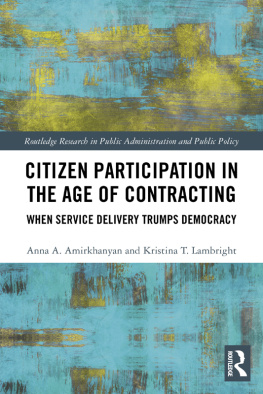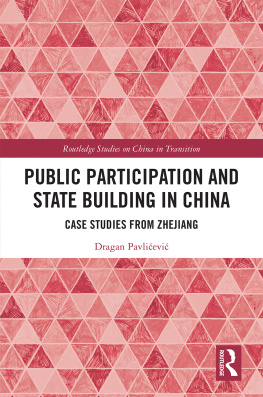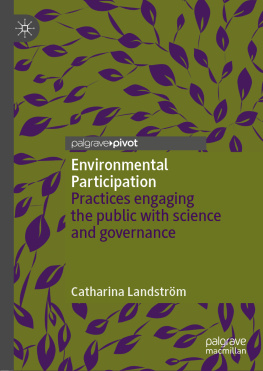p.i
This superb collection leverages Africa the most dynamic and understudied region for world constitutionalism for a sophisticated examination of the promises and perils of public participation. With its rigorous framing and rich case studies, the book provides a major advance in our understanding of constitution-making in the 21st century. Tom Ginsburg, Leo Spitz Professor of International Law and Professor of Political Science at the University of Chicago, and a member of the American Academy of Arts and Sciences, USA
Demands that constitutional reform must be people driven are now ubiquitous in Africa but does participatory constitution-making strengthen constitutionalism in Africa? What makes it meaningful? What is its impact on minorities? Can it effectively challenge elite interests? What are its risks? This wide-ranging volume explores these and related questions with case studies that challenge the usual platitudes and enrich our understanding of constitution-making in Africa. It is a wonderful contribution! Christina Murray, Professor of Constitutional and Human Rights Law, University of Cape Town and Senior Advisor on constitutions and power sharing, Mediation Support Unit, Department of Political Affairs, UN
An African proverb says that you cannot shave someones head in his absence. Africas post-independence constitutions were hurriedly crafted and imposed by the departing colonial powers with very limited involvement of the people. From the 1990s a new era of made in Africa constitutions based on popular participation began. Tania Abbiate et al s book provides the first fresh and much-needed insightful and thoughtful analysis that goes beneath the rhetoric to reveal the realities of popular participation in the making of the new generation of African constitutions. Written by a group of eminent scholars and accomplished practitioners, the book is a timely and highly valuable contribution that could not have come at a better time. As the UN Office of the High Commission for Human Rights has embarked on drafting guidelines to promote more effective public participation in public affairs, this book is bound to put the African experience at the centre of the global debate. Because it takes account of and reflects the experiences of Africas diverse constitutional traditions, the book makes compelling reading to all legal and political theorists, practitioners and all those who are interested in the increasingly important discourse on public participation in constitutional processes and public affairs in general. Charles Manga Fombad, Professor of Comparative African Constitutional Law at the Institute for International and Comparative Law in Africa, Faculty of Law, University of Pretoria, South Africa
p.iii
Public Participation in African Constitutionalism
During the last decade of the 20th century, Africa has been marked by a constitutional wind which has blown across the continent giving impetus to constitutional reforms designed to introduce constitutionalism and good governance. One of the main features of these processes has been the promotion of public participation, encouraged by both civil society and the international community.
This book aims to provide a systematic overview of participation forms and mechanisms across Africa, and a critical understanding of the impact of public participation in constitution-making processes, digging beneath the rhetoric of public participation as being at the heart of any successful transition towards democracy and constitutionalism. Using case studies from Central African Republic, Egypt, Kenya, Libya, Malawi, Morocco, Senegal, Somalia, South Africa, South Sudan, Tanzania, Tunisia, Zambia and Zimbabwe, the book investigates various aspects of participatory constitution making: from conception, to processes, and specific contents that trigger ambivalent dynamics in such processes. The abstract glorification of public participation is questioned as theoretical and empirical perspectives are used to explain what public participation does in concrete terms and to identify what lessons might be drawn from those experiences.
This is a valuable resource for academics, researchers and students with an interest in politics and constitution building in Africa, as well as experts working in national offices, international organizations or in national and international NGOs.
Tania Abbiate is a Senior Researcher at the Max Planck Institute for Social Law and Social Policy, Germany.
Markus Bckenfrde is Executive Director and Senior Researcher at the Centre for Global Cooperation Research, Duisburg, Germany, and a Visiting Professor at the Central European University (CEU), Budapest, Hungary.
Veronica Federico is Researcher of Comparative Public Law in the Department of Legal Studies at the University of Florence, Italy.
p.iv
Routledge Global Cooperation Series
This series develops innovative approaches to understanding, explaining and answering one of the most pressing questions of our time how can cooperation in a culturally diverse world of nine billion people succeed?
We are rapidly approaching our planets limits, with trends such as advancing climate change and the destruction of biological diversity jeopardising our natural life support systems. Accelerated globalisation processes lead to an ever-growing interconnectedness of markets, states, societies and individuals. Many of todays problems cannot be solved by nation states alone. Intensified cooperation at the local, national, international and global level is needed to tackle current and looming global crises.
Series Editors:
Tobias Debiel, Claus Leggewie and Dirk Messner are Co-Directors of the Kte Hamburger Kolleg/Centre for Global Cooperation Research, University of Duisburg-Essen, Germany. Their research areas are, among others, Global Governance, Climate Change, Peacebuilding and Cultural Diversity of Global Citizenship. The three Co-Directors are, at the same time, based in their home institutions, which participate in the Centre, namely the German Development Institute/Deutsches Institut fr Entwicklungspolitik (DIE, Messner) in Bonn, the Institute for Development and Peace (INEF, Debiel) in Duisburg and The Institute for Advanced Study in the Humanities (KWI, Leggewie, former Director, now retired) in Essen.
https://www.routledge.com/Routledge-Global-Cooperation-Series/book-series/RGC
Titles:
American Hegemony and the Rise of Emerging Powers
Cooperation or Conflict
Edited by Salvador Santino F. Regilme Jr. and James Parisot
Moral Agency and the Politics of Responsibility
Challenging Complexity
Edited by Cornelia Ulbert, Peter Finkenbusch, Elena Sondermann and Tobias Debiel
Public Participation in African Constitutionalism
Edited by Tania Abbiate, Markus Bckenfrde and Veronica Federico
p.v
Public Participation in African
Constitutionalism
Edited by Tania Abbiate, Markus
Bckenfrde and Veronica Federico
p.vi
First published 2018
by Routledge
2 Park Square, Milton Park, Abingdon, Oxon OX14 4RN
and by Routledge
711 Third Avenue, New York, NY 10017
Routledge is an imprint of the Taylor & Francis Group, an informa business
2018 selection and editorial matter, Tania Abbiate, Markus Bckenfrde and Veronica Federico; individual chapters, the contributors
The right of Tania Abbiate, Markus Bckenfrde and Veronica Federico to be identified as the authors of the editorial material, and of the authors for their individual chapters, has been asserted in accordance with sections 77 and 78 of the Copyright, Designs and Patents Act 1988.

